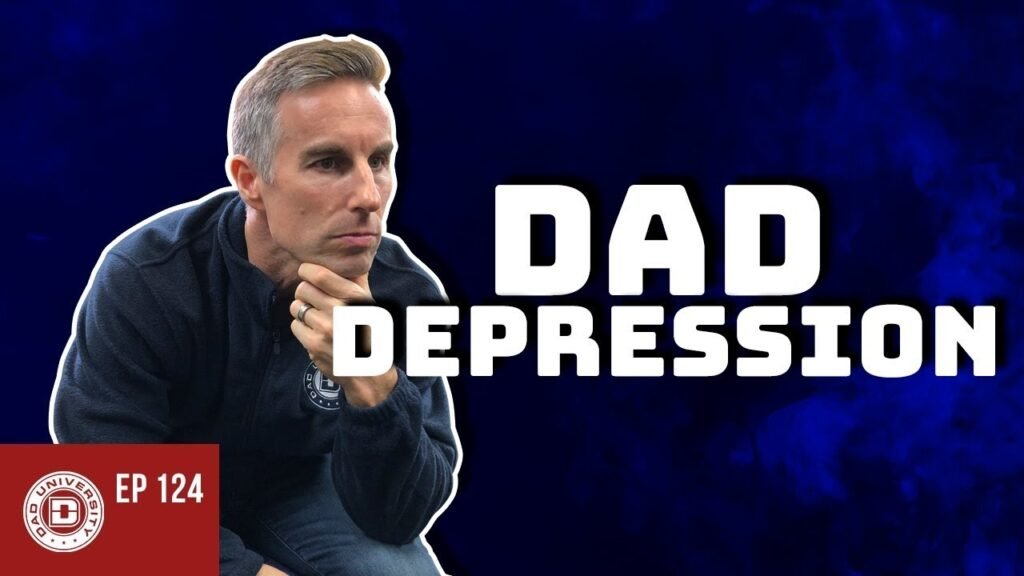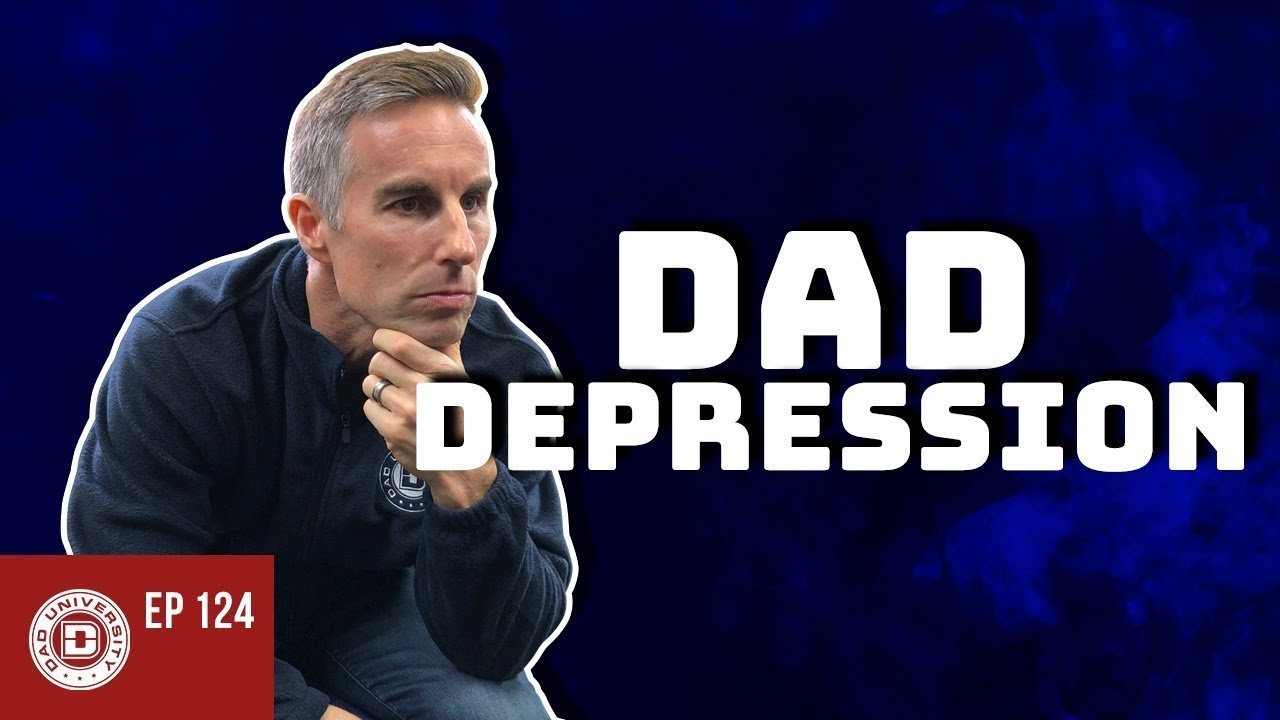“Dad Depression: A Common Issue Often Overlooked” sheds light on the prevalence of dad depression, a silent struggle that often remains undiagnosed or unrecognized. In this insightful video by Dad University, Jason delves into the reasons behind this form of depression that affects fathers after the baby stage, specifically with children aged 3-7. Through personal experience and research, Jason offers suggestions on how to overcome dad depression and highlights the importance of seeking help and support from available resources such as helplines for mental health and suicide prevention. This article aims to provide support and guidance for dads dealing with depression, emphasizing that they are not alone in their journey towards better mental health.
Depression can have a significant negative impact on your life as a dad, affecting your relationships, work, and overall well-being. Dad depression can stem from various factors including financial strain, relationship issues, and job stress. It is crucial to acknowledge your feelings and seek help if you experience thoughts of suicide or harming others. Men often hide their depression and express it differently than women, making it essential to address this issue openly. This article provides practical tips for overcoming dad depression, including admitting and taking responsibility for your depression, consuming positive content, practicing self-care through better eating and drinking habits, exercising, practicing gratitude, and seeking professional help. It is important to remember that support exists and you are not alone in your journey towards better mental health.
Dad Depression: A Common Issue Often Overlooked
Introduction to Dad Depression
Dad depression is a prevalent issue that often goes undiagnosed or unacknowledged. It can significantly impact a father’s life, particularly as it relates to his role as a parent. Depression is a mental health disorder that affects millions of people worldwide, and fathers are not exempt from experiencing its adverse effects. In this article, we will explore the topic of dad depression, understanding its causes, how it impacts daily life, recognizing its signs, and most importantly, how to overcome it.
Understanding Dad Depression
Depression is a mental health disorder characterized by persistent feelings of sadness, hopelessness, and a loss of interest in activities once enjoyed. It affects a person’s thoughts, feelings, behavior, and overall well-being. While depression is commonly associated with women, men experience it as well, although they may hide it or express it differently.
Causes of Dad Depression
Dad depression can be caused by various factors, including financial strain, relationship issues, job stress, and the challenges of parenting. Financial strain, such as debt or unemployment, can lead to feelings of inadequacy and stress, which can contribute to depression. Relationship issues, such as marital conflict or divorce, can also have a significant impact on a father’s mental health. Additionally, the pressures and demands of being a parent, especially with children aged 3-7, can increase stress levels and contribute to dad depression.
The Impact of Dad Depression on Daily Life
Depression can have a profound impact on a father’s daily life, affecting not only his mental health but also his physical well-being, relationships, and overall quality of life. It can lead to a loss of motivation, decreased productivity at work, and an increased risk of substance abuse. Dad depression can strain relationships with a spouse or partner, as well as with children, making it challenging to provide emotional and physical support. Depression can also result in feelings of isolation, self-doubt, and a sense of detachment from others.
Recognizing the Signs of Dad Depression
It is essential to recognize the signs and symptoms of dad depression to seek help and support. Some common signs of dad depression include persistent sadness, irritability, loss of interest in activities, fatigue, changes in appetite and sleep patterns, difficulty focusing or making decisions, feelings of worthlessness or guilt, and thoughts of death or suicide. It is crucial to remember that everyone’s experience of depression is unique, and not everyone will exhibit all of these signs. However, if you or someone you know is experiencing these symptoms, it is essential to reach out for help.

Overcoming Dad Depression: Tips and Strategies
While overcoming dad depression can be challenging, there are steps you can take to improve your mental health and well-being. Here are some tips and strategies:
Admitting and Accepting Dad Depression
The first step in overcoming dad depression is acknowledging and accepting that you are experiencing it. Admitting to yourself that you are depressed can be difficult, but it is crucial to understand that depression is not a personal failing or weakness. Recognizing your struggle and seeking help is a significant step towards recovery.
Stopping Complaining and Dwelling on Negativity
Complaining and dwelling on negativity can perpetuate feelings of depression. By consciously choosing to focus on the positive aspects of your life and reframing negative thoughts, you can change your perspective and improve your mental well-being. Practice gratitude by identifying and appreciating the good things in your life, no matter how small.
Taking Responsibility for Self-Care
Self-care is essential for mental health and well-being. Take responsibility for your self-care by prioritizing activities that promote relaxation, self-reflection, and self-care. Engage in activities you enjoy, such as hobbies, exercising, spending time in nature, or practicing mindfulness and meditation.
Consuming Positive Content and Surrounding Yourself with Supportive People
The media we consume can significantly impact our mental well-being. Limit exposure to negative media and instead seek out positive and uplifting content. Surround yourself with supportive people, whether it be friends, family, or support groups. Building a strong support system can provide a sense of connection and understanding during difficult times.
Improving Physical Health through Better Lifestyle Choices
Physical health and mental health are interconnected. Making positive lifestyle choices, such as improving your diet, getting regular exercise, and reducing alcohol consumption, can have a significant impact on your mental well-being. A healthy lifestyle can increase energy levels, improve mood, and reduce symptoms of depression.
Practicing Gratitude and Mindfulness
Practicing gratitude and mindfulness are powerful tools for managing depression. Take time each day to reflect on the things you are grateful for and make a conscious effort to stay present in the moment. Mindfulness exercises, such as deep breathing or meditation, can help calm the mind and reduce feelings of anxiety or depression.
Seeking Professional Help and Support
It is crucial to remember that you are not alone in your struggle with dad depression. Seeking professional help from therapists or counselors who specialize in mental health can provide valuable support and guidance. Therapy can help you explore the underlying causes of your depression and develop coping strategies and techniques to manage it effectively. Additionally, support groups, helplines, and online forums can provide a safe space to connect with others who may be experiencing similar challenges.
Conclusion: Remembering You Are Not Alone and Seeking Support
Dad depression is a common issue that should not be overlooked or dismissed. It is essential to recognize the signs, seek help, and take steps towards recovery. Remember, you are not alone in your struggle, and there are resources available to support you. Reach out to mental health helplines or contact a therapist to get the help you need. With the right support and strategies, it is possible to overcome dad depression and regain a sense of well-being and happiness in your life. Remember, you are deserving of support and care, and you have the strength to overcome this challenge.

